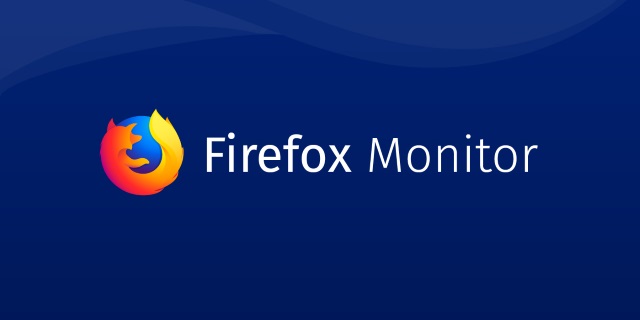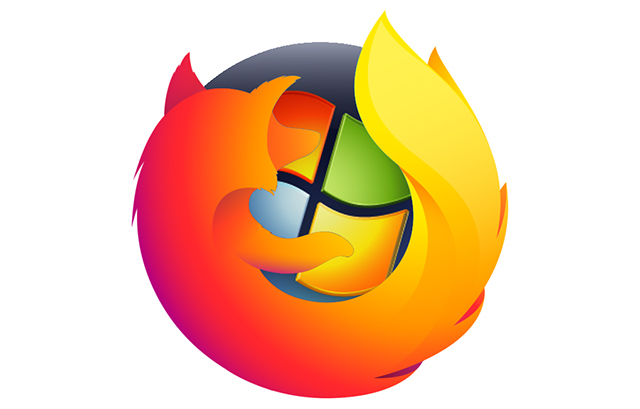
Mozilla teams up with Have I Been Pwned to create data breach notification tool, Firefox Monitor
Mozilla has partnered with Troy Hunt -- the brain behind data compromise checking service Have I Been Pwned -- to create its own data breach notification service. Called Firefox Monitor, the free service lets users check if any of their email accounts or personal data have been involved in data breaches.
More than this, Firefox Monitor can also keep an eye out for future data breaches and notify those who have signed up whether their data has been affected.

Browser Reaper: exploit causes Firefox to crash
A security researcher has developed an attack that exploits a Firefox bug, making it possible to crash the web browser.
Sabri Haddouche used his Browser Reaper website to share a live test version of the exploit -- the site is also home to exploits for Chrome and Safari. The Firefox attack uses JavaScript to crash or freeze the browser, with the effect of the exploit depending on whether the browser is running on Linux, Windows or macOS.

Mozilla to boost Firefox privacy by automatically blocking all tracking
Mozilla has announced some of its plans for Firefox, and there's a strong focus on privacy. At an as-yet unspecified point in the "near future" the browser will block all tracking by default, although it is being trialed this month.
In addition to this -- which is a change from the current Do Not Track option -- Firefox will include a new set of options which Mozilla says will give users greater control over the information they share with websites. As well as helping to improve privacy, Mozilla is also hoping to improve the performance of its web browser with a new set of controls that it says will empower users and give them a voice.
Mozilla fox up its designs
Mozilla is looking to change the design of the Firefox logo and it is seeking help -- which is just as well, because the designs it has come up with so far are awful.
The company says that it is looking to "evolve the Firefox brand" as it develops new apps and services beyond the browser it is currently associated with. The aim is to come up with a new branding system that can "embrace all of the Firefox products in the pipeline and those still in the minds of our Emerging Technologies group", and it wants to know what you think.
Privacy: Firefox for iOS now has tracking protection by default and new options for iPad users
Mozilla has launched a new version of Firefox for iOS, and the big news is that it now has Tracking Protection turned on by default.
It comes shortly after the feature was added to the desktop version of the web browser, and protection is enabled by default in both regular and private browsing modes. This release also sees the arrival of some great new features in the iPad version, including tab re-ordering, and drag and drop support for links.

Mozilla's Facebook Container extension keeps your Firefox browsing isolated from Facebook
Facebook has been completely inescapable in the news over the last couple of weeks, and there are increasing concerns that the social network is all but inescapable online generally. In the wake of recent privacy concerns about Facebook, Mozilla -- already petitioning for Mark Zuckerberg to do more -- has launched a new extension for Firefox that helps to keep your browsing private.
Called "Facebook Container", the add-on has been designed to make it much harder for Facebook to track your web browsing when you're not using the social network.

Mozilla's 2018 roadmap shows ad blocking (of sorts) is coming to Firefox
Ads may be central to the running of the web, but that doesn't mean people want to see them. Ad blocking is more popular than ever, and it's something that's been noted by Mozilla.
Revealing its 2018 roadmap for Firefox, the company says that an ad blocker is being added to the web browser -- albeit a limited one. On top of this, additional privacy controls are on the cards, as is a tool to block auto playing videos, and a breach alert system.

Mozilla pulls advertising from Facebook
Mozilla is not happy with Facebook. Not happy at all. Having already started a petition to try to force the social network to do more about user privacy, the company has now decided to withdraw its advertising from the platform.
The organization is voting with its money following the misuse of user data by Cambridge Analytica, as it tries to force Facebook into taking privacy more seriously.
Mozilla launches a petition asking Facebook to do more for user privacy
In the fallout from the Cambridge Analytica debacle, Facebook has been roundly criticized for not only its handling of the situation, but also its attitude to privacy in general. The criticism comes not only from users, but also politicians and technology firms. The latest company to speak out is Mozilla.
After it was revealed that the personal data of 50 million Facebook users was shared without consent, Mozilla is calling on the social network to ensure that user privacy is protected by default, particularly when it comes to apps.

Mozilla Firefox Quantum available as Snap for Linux
If you use Linux on the desktop, there is no shortage of great web browsers from which to choose. For instance, popular options like Firefox, Chrome, and Opera are all available. Thankfully, Microsoft Edge is nowhere to be found!
Firefox is probably the most appropriate web browser to use on Linux. Why? Well, Mozilla’s open source focus is largely aligned with the Linux community. Today, Firefox Quantum becomes even more attractive to Linux users as it is now available as a Snap.

Firefox's 'master password' system can be easily bypassed using brute force
If you're a Firefox user, it's highly possible that you use the browser to store your login usernames and passwords for the sake of ease. Supposing you're a little security conscious, you may well have enabled the 'master password' function to prevent unauthorized access to your password database.
Well, there's a little bad news. It's nowhere near as secure as you may have thought. Wladimir Palant -- the guy behind the AdBlock Plus extension -- found that the system, which is used by both Firefox and Thunderbird, can be very easily brute-forced, leaving passwords vulnerable to malware and hackers.

You'll be able to disable and hide Firefox Sync in Firefox 60
For some people, Firefox Sync is a great way to synchronize browser settings, add-ons, bookmarks and so on between computers. For others it's a privacy nightmare and a massive annoyance.
Starting with Firefox 60, Mozilla is making it possible to not only disable the feature, but also hide it. This might seem like a minor change, but for anyone irritated by the mere presence of Firefox sync, it's something that should have happened sooner.

Firefox: Windows 7 way more popular than Windows 10
Depending on which analyst firm you believe, Windows 10 will either finally overtake Windows 7 this month, or it won’t. Either way, the newest OS is narrowing the gap.
However, according to the Firefox Hardware Report, a public weekly survey of the hardware and software used by everyone running the release channel desktop build of Mozilla's web browser, Windows 10 still has a long way to go until it catches up to Windows 7.

Yahoo sues Mozilla for breach of contract -- so Mozilla countersues Yahoo
Mozilla and Yahoo have started a legal spat about the deal that existed between the two companies regarding the use of the Yahoo search engine in the Firefox browser.
On December 1, Yahoo fired the first shot filing a complaint that alleges Mozilla breached a contract that existed between the two companies by terminating the arrangement early. In a counter complaint, Mozilla says that it was not only justified in terminating the contract early, but that Yahoo Holdings and Oath still have a bill that needs to be settled.

Mozilla Firefox 57 unveils new speedy Quantum browsing engine, revamps user interface
Mozilla has placed Firefox 57.0 on its servers for download, ahead of its official release tomorrow. Also due imminently is Firefox for Android 57.0. The new release sees the debut of Mozilla’s next-generation browsing engine, Quantum.
The new engine is paired with a major user-interface revamp boasting a more modern, pared-down look, plus feature highlights include improved Address Bar and redesigned new tab page. In addition there are major changes (with potentially significant consequences) to the browser’s extension support.
